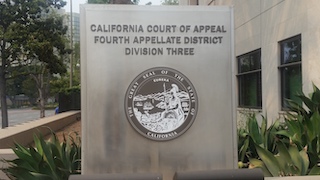 CA 4th Appellate District Division 3 OC
CA 4th Appellate District Division 3 OC
When is a sentence final? A sentence is considered final if: 1) there is no appeal pending in the court of appeal; 2) a petition for review in the California Supreme Court is not pending and cannot still be filed; or 3) more than 90 days has passed for filing a writ of certiorari to the United States Supreme Court (the “90-Day Clock” starts on the day one’s petition for review to the California Supreme Court is denied).
However, if a sentence is deemed final, the CDCR, at any time while the sentence is being served, can recommend to the sentencing judge that he or she recall the sentence and review the sentence for possibly a lower term under Penal Code § 1170(d)(1). The judge has the power to resentence a person “for any reason rationally related to lawful sentencing.” Dix v. Superior Court (1991) 53 Cal.3d 442, 456. Usually, this type of resentencing is to correct sentencing errors and to consider facts not available at the time of the original sentencing.
As mentioned above, Frahs is an unpublished decision. One cannot cite to it in a filing to any court. This could be seen as good if one is interested in mental health diversion despite a sentence being final.
However, that euphoria, if existing, was extinguished in the recent published decision in People v. Jeffrey Edward Sapienza (2019 DJDAR 6201) out of the Fourth Appellate District involving a case arising in Murrieta.
Mr. Sapienza pled guilty to felony criminal threats in Riverside Superior Court on August 31, 2015. Judge Elaine Kiefer imposed the upper term of three years in state prison, but suspended execution of the sentence and placed Sapienza on three years of formal probation.
Two years and four months later, Judge Kiefer found him in violation of probation and on March 23, 2018, imposed the three-year suspended sentence.
On May 16, 2018, Sapienza filed a notice of appeal, requesting a certificate of probable cause for ineffective assistance of counsel. In his appeal, he then argued that the imposition of the prison sentence should be reversed and then he should be considered for pre-trial diversion under Penal Code § 1001.36 (“mental health diversion”).
The Fourth Appellate District denied Sapienza’s appeal, pointing out that 1001.36 is not retroactive and that even if retroactive, it would be limited to cases wherein judgement was not final. Sapienza’s judgement was final 60 days after the sentence was imposed by failing to file an appeal then (judgement was entered on August 31, 2015).
“The imposition of the sentence is equated with entry of a final judgement. Once a sentence is imposed, the trial court does not have jurisdiction to modify or change the final judgment and is required to order that judgment into execution.” People v. Mora (2013) 214 Cal.App.4th 1477, 1482.
Where a defendant fails to challenge “the validity of the sentence the court imposed when granting probation, no good reason exists for allowing him to do so once the court revokes his probation.” People v. Howard (1997) 16 Cal.4th 1081, at 1095; accord People v. Superior Court (Rodas) (2017) 10 Cal.App.5th 1316, 1318, 1325-1326 [to hold otherwise would have the “absurd effect of encouraging defendants to violate the terms of their probation in the hopes of extending the probation term to take advantage of any beneficial changes in the law during the probationary period.”]
The citation for the Fourth Appellate District Court ruling discussed above is People v. Jeffrey Edward Sapienza (4th App. Dist., 2019) 39 Cal.App. 5th 58.
For more information about Mental Health Division under Penal Code § 1001.36, please click on the following articles:
Contact us.  CA 4th Appellate District Division 3 OC
CA 4th Appellate District Division 3 OC